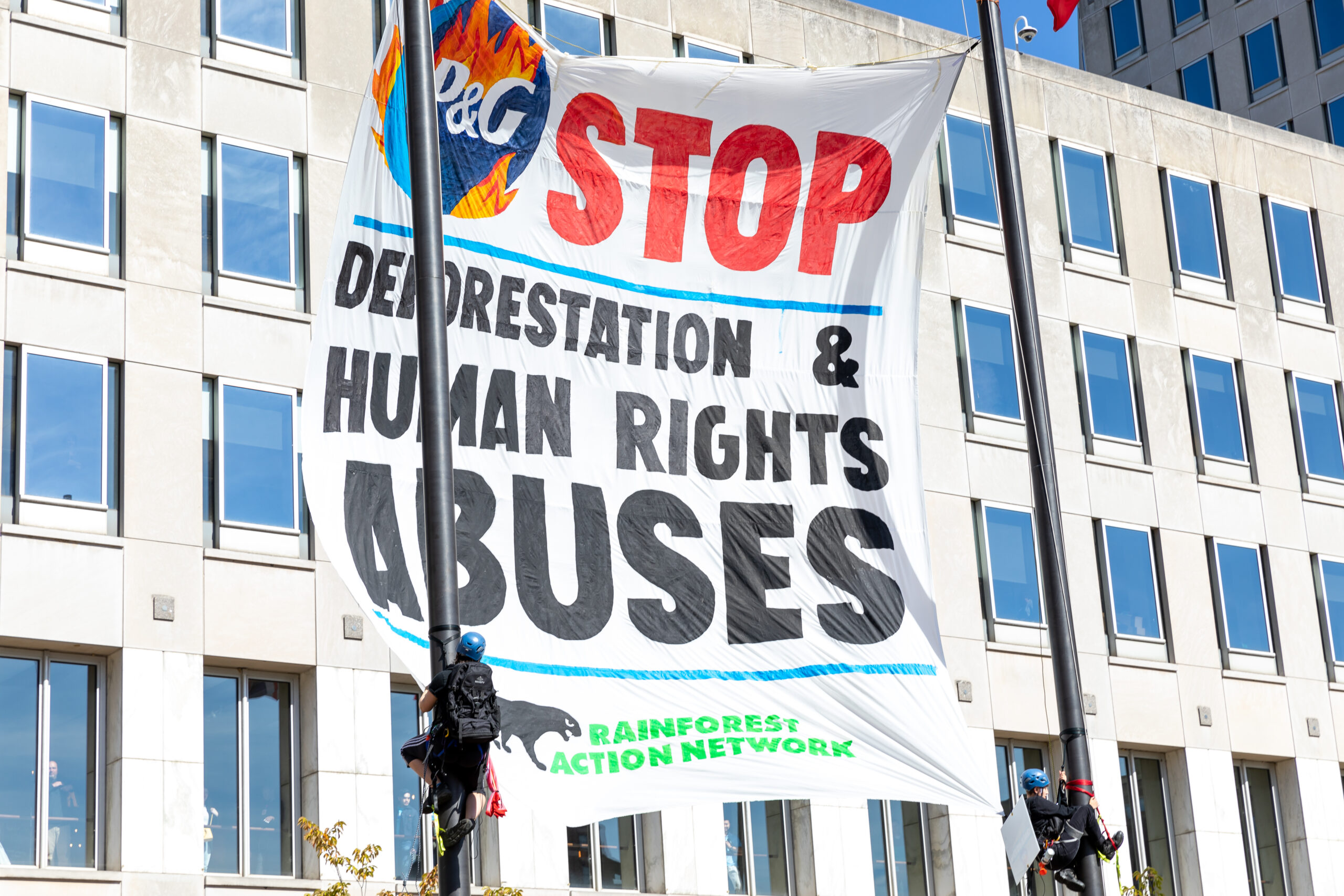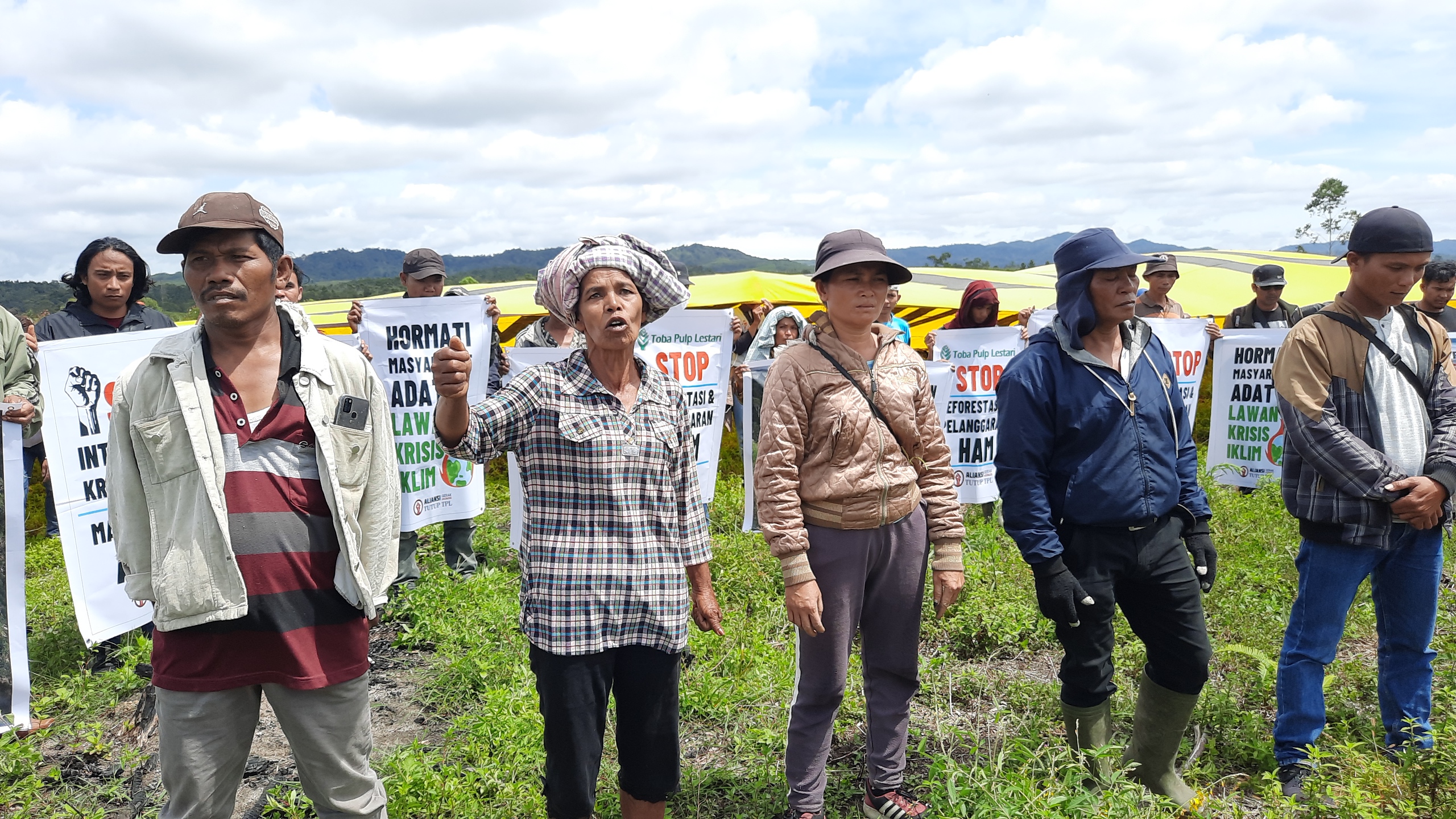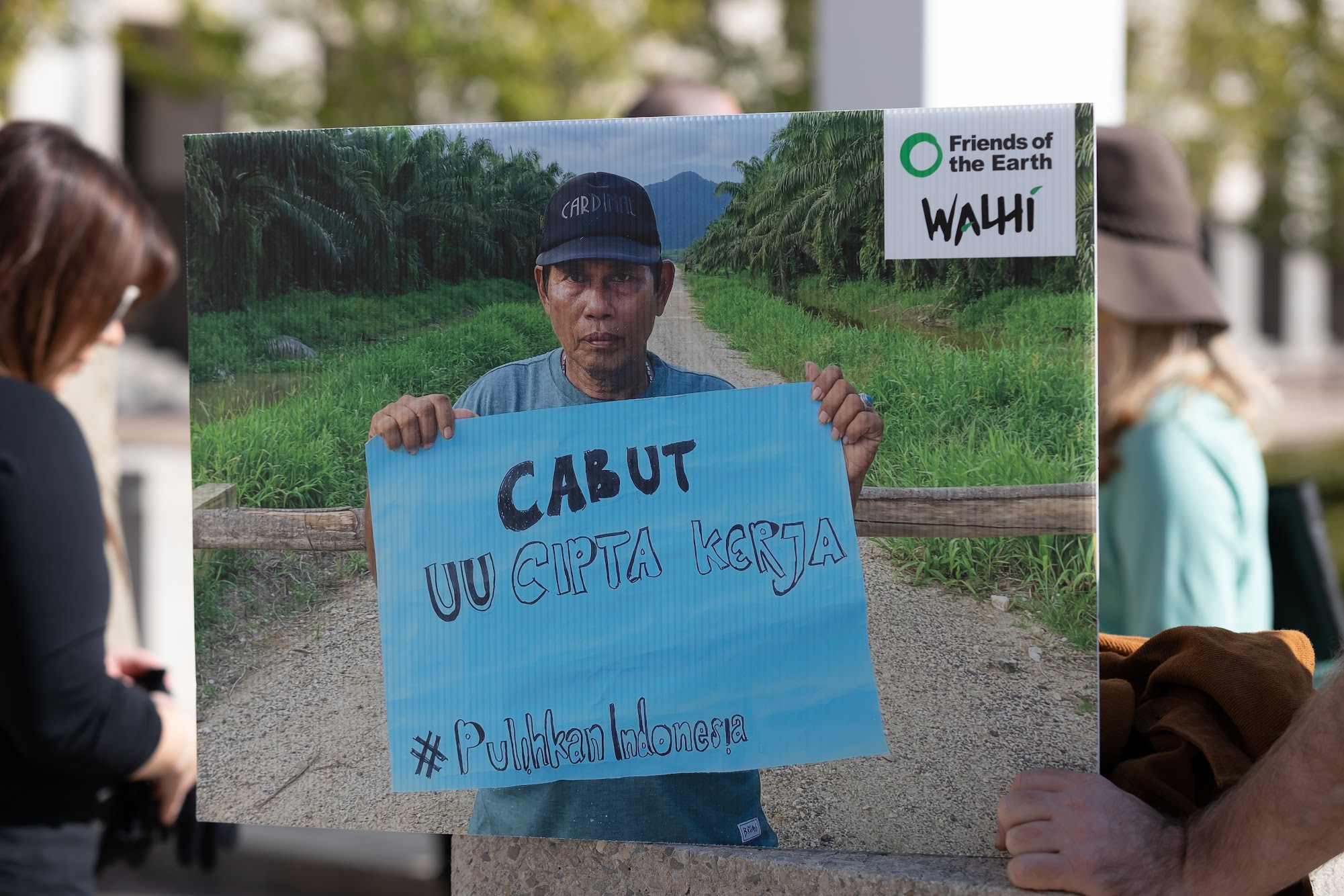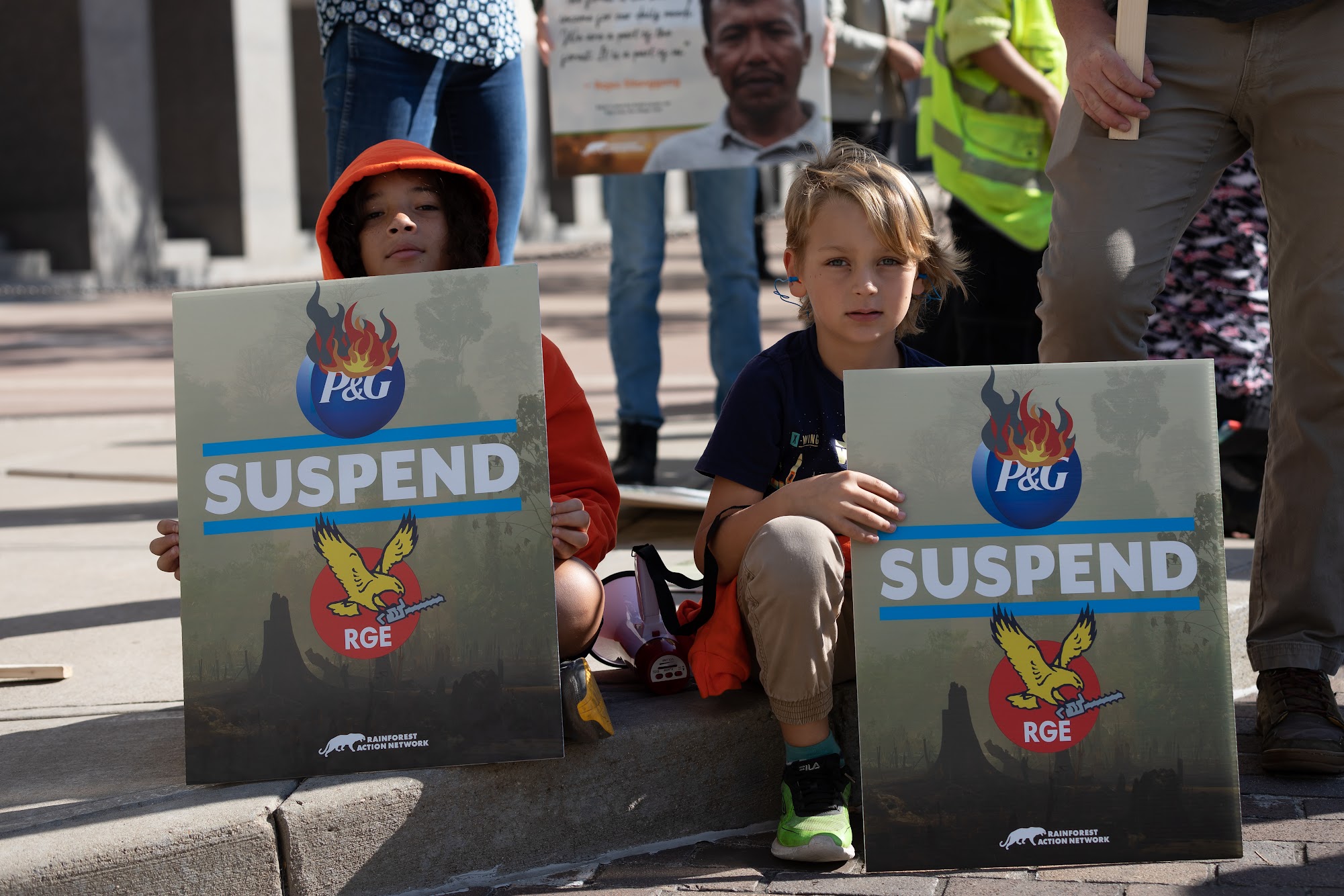Last week, we protested outside Procter & Gamble’s headquarters in Cincinnati, demanding that the company take action against deforestation and human rights abuses in its global supply chain.
A broad coalition of climate, forest and human rights advocates — including descendants of P&G’s founders — joined us to drive home longstanding demands around environmental harm and human suffering connected to P&G’s pulp and palm oil sourcing.
“[P&G] executives claim to take the climate disaster seriously, but they are clearly more concerned with endless financial growth than with ensuring a livable planet for everyone. As a descendant of James Gamble, I stand with the communities around the world impacted by P&G’s extraction….” —Justine Epstein, P&G Descendant
Police arrested two Cincinnati activists working with RAN after they climbed P&G flagpoles to unfurl a banner that read, “P&G: End Deforestation and Rights Abuses.” The company has indicated it will press charges. Earlier this year, the company declined to press charges against activists arrested at a RAN protest under similar circumstances.
Mounting Pressure
As events unfolded outside P&G, pressures mounted from within. Major investor shareholders voted against CEO Jon Moeller during this year’s proceedings. These investors included the New York State Common Retirement Fund, New York City pension funds and Norway’s sovereign wealth fund.
P&G also faced pressure from 10,000 miles away, in Indonesia, where dozens of Batak men and women from nine separate communities held a coordinated demonstration. All nine of their communities are in conflict with a pulp company linked to P&G’s supply chain.
A History of Failure
Protests come after failures by P&G leadership to address unethical wood pulp and palm oil sourcing from regions as diverse as the Canadian boreal and southeast Asia. In 2020, a super-majority of P&G shareholders urged the company to increase the scale, pace and rigor of its efforts to address the environmental and social harms linked to its pulp and palm oil sourcing.
Resulting inaction by P&G prompted RAN, Friends of the Earth and the Natural Resources Defense Council to urge shareholders this year to vote against the reelection three board members — CEO and Board Chair Jon Moeller, Angela Braly and Patricia Woertz. Under their leadership, P&G has failed to live up to its own claims and commitments, and continues to source from suppliers that it knows cause serious human suffering and environmental harm.
Paper Promises
One such problematic supplier is Royal Golden Eagle (RGE), which has deep ties to land grabs in Indigenous territories in North Sumatra, Indonesia. RGE affiliate Toba Pulp Lestari (TPL) occupied nearly half the customary forest of one Indigenous community, the Pargamanan-Bintang Maria, without their consent. TPL also has a long history of criminalizing and attacking Indigenous human rights defenders — even as recently as last August.
“P&G is contributing to land-grabbing and intimidation against Indigenous Batak communities in Indonesia… P&G must immediately suspend its business ties [with RGE] and demonstrate it respects Indigenous communities.” —Delima Silalahi, KSPPM (Sumatra-based human rights organization)
A recent evaluation of toilet paper brands by the NRDC, Issue with Tissue, found that P&G is dead last among the three largest American tissue companies. Its Charmin, Puffs, Bounty and other ubiquitous paper brands received straight “F” scores due to their use of virgin pulp from centuries-old forests in the Canadian boreal.
TAKE ACTION
Late-Breaking Scandals
We recently released a damning report exposing direct connections between P&G palm oil suppliers and illegal deforestation in the Rawa Singkil Wildlife Reserve in Indonesia’s globally important Leuser Ecosystem. The report, Carbon Bombs Scandal: Big Brands Driving Climate Disaster for Palm Oil, uses evidence from field investigations, satellite imagery and supply chain research to link palm oil from the Singkil to major brands including P&G — a clear violation of P&G’s deforestation-free commitments.
An Uncertain Future
Just last week, Bloomberg reported that P&G followed other consumer goods companies in suspending ties with subsidiaries of Indonesia’s second largest palm oil producer. This was following a Friends of the Earth exposé on that company’s human right violations and governance failures.
While this is an encouraging step, P&G has yet to sever ties with Royal Golden Eagle. It also has not addressed the recent “carbon bomb” scandals involving illegal palm oil cultivation in the Leuser Ecosystem. Our protest in Cincinnati last week represents yet another opportunity for P&G to embrace real change. The price of Procter & Gamble’s continued inaction is mass human suffering, deforestation and climate chaos. And we refuse to accept that.



